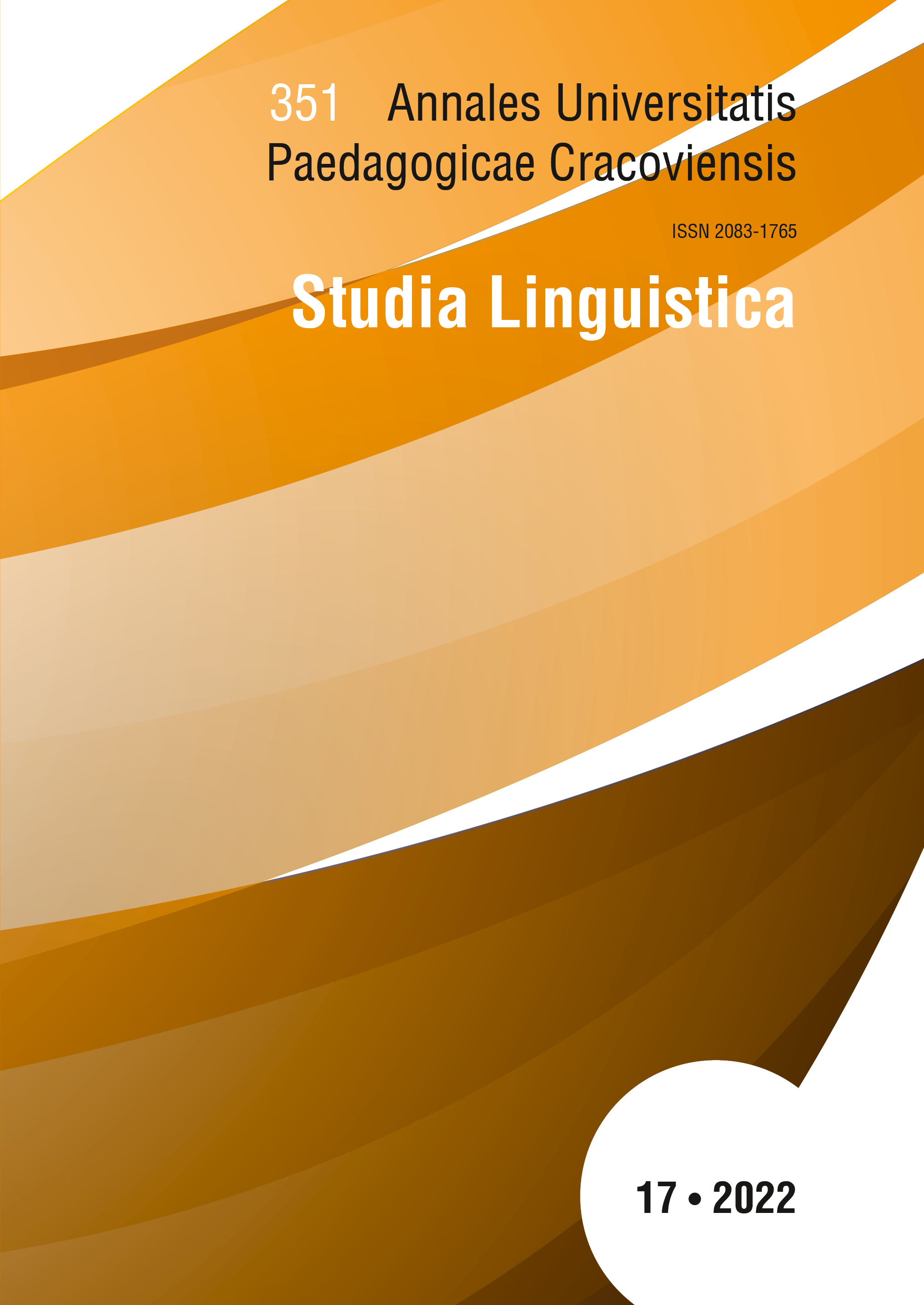„Zawżdy usty śpiewali” („The lips always sang”), or about vocal music in Kronika, to jest historyja świata by Marcin Bielski (1564)
Main Article Content
Abstract
The article describes how to present vocal music in the most complete edition of Kronika of Marcin Bielski (1564). The view of the linguistic formation of this fragment of reality in an idiolectic approach from the 16th century confirms the use of several groups of words to describe this part of music that Bielski considers singing: the names of the melodic process of producing sound (śpiewać, odśpiewawać, przyśpiewawać, śpiewanie), what is sung (antyfona, cantica, gradał, hymn/hymna, kantyki, pienie, pieśń, proza, psalm, psałterz, responsyja, śpiewanie, żołtarz) and singers (psalterzysta, śpiewaczka, śpiewak). The conducted analyzes showed some features of Bielski’s lexical and research workshop and confirmed that his work is the beginning of perfecting the Polish language in many areas of its functioning.
Downloads
Article Details

This work is licensed under a Creative Commons Attribution-NonCommercial-NoDerivatives 4.0 International License.
Author, submitting a text to the editorial board of the journal “Annales Universitatis Paedagogicae Cracoviensis. Studia Linguistica", certifies that the content of the article has not been published so far and that the work does not violate in any way the copyright or related rights of other person, as well as other rights of third parties, and that no one's rights to the work (or any part thereof) have been missed. After signing the contract, the property rights to the published materials are transferred to the Scientific Publisher of the University of the National Education Commission, Krakow.
“Annales Universitatis Paedagogicae Cracoviensis. Studia Linguistica” is an open access journal, and all its content is made available free of charge to users and institutions under the Creative Commons CC-BY-NC-ND 4.0 license (attribution, non-commercial use, no derivative works). Under this license, the authors agree that their work may be lawfully reused for any purpose, except for commercial purposes, without the prior consent of the author or publisher. Everyone can read, download, copy, print, distribute and process these works, provided that the author's marking and the original publication place are correct. Published texts may not be used to create derivative works (e.g. to translate and publish in another language without the consent of the publisher). This is in line with the BOAI (Budapest Open Access Initiative) definition. "Studia Linguistica" does not charge for submitting or processing articles.
References
Bielski M., 2019, Kronika, to jest historyja świata, oprac. D. Śnieżko, D. Kozaryn przy współudziale E. Karczewskiej, t. 1–3, Szczecin.
Google Scholar
Boryś W., 2010, Słownik etymologiczny języka polskiego, Kraków.
Google Scholar
Mayenowa M.R. (red.), 2002, Słownik polszczyzny XVI wieku, t. 30, Warszawa.
Google Scholar
Mayenowa M.R. (red.), 2010, Słownik polszczyzny XVI wieku, t. 34, Warszawa.
Google Scholar
Muszkalska B., 2018, Kol isza be-lakasz vs mulier taceat in ecclesia. Głos kobiecy w judaizmie i chrześcijaństwie, „Liturgia Sacra. Przegląd Liturgiczno-Muzyczny”, R. 24, nr 1, s. 189–198.
Google Scholar
Pisarkowa K., 1963, Pomocnicze elementy języka muzykologii, „Język Polski”, R. 43, z. 2, s. 113–128.
Google Scholar
Pismo Święte Starego i Nowego Testamentu, 1980, oprac. Zespół Biblistów Polskich z inicjatywy Benedyktynów Tynieckich, wyd. 3 poprawione, Poznań.
Google Scholar
Potter J., Sorrell N., 2021, Historia śpiewu, tłum. K. Wiwer, Kraków.
Google Scholar
Prochowicz A., 2013, Jak mówimy o śpiewaniu? Metafory synestezyjne jako element językowego obrazu śpiewu ludzkiego w polszczyźnie, „Linguarum Silva”, nr 2, s. 55–70.
Google Scholar
Urbańczyk S. (red.), 1982–1987, Słownik staropolski, t. 9, Wrocław.
Google Scholar
Słownik polszczyzny XVI wieku, t. 1, 7, 8, 10, 13, 21, 35 – dostęp 13–15.03.2022
Google Scholar
